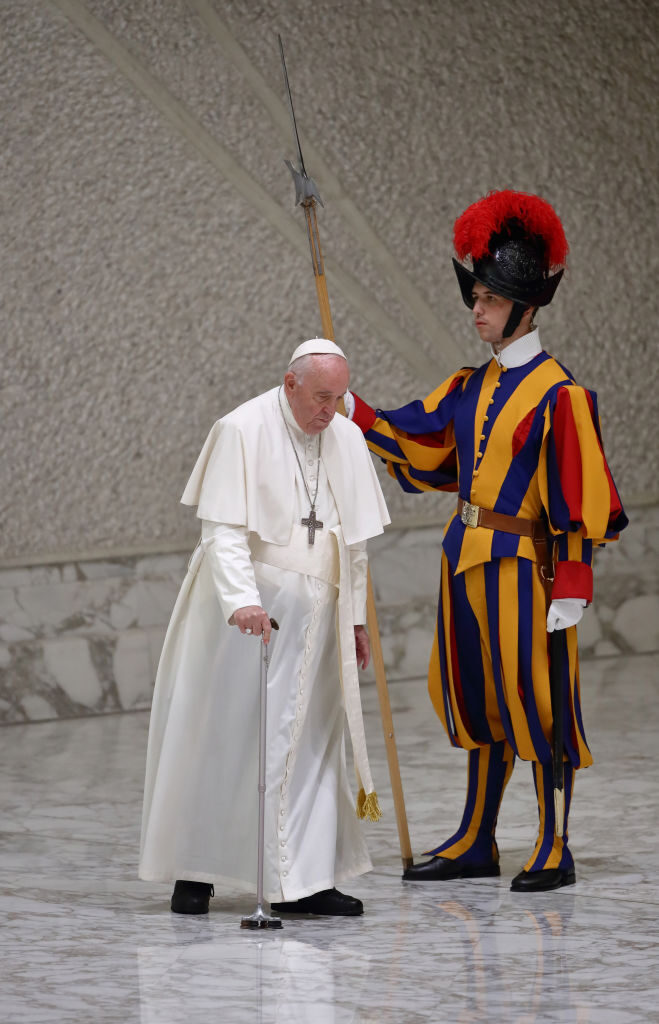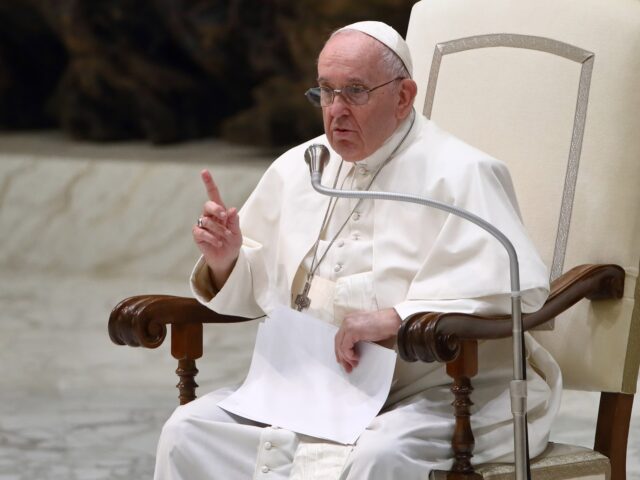ROME — Pope Francis has once again criticized traditionalist Catholics as woefully stuck in the past and dangerously opposed to change.
In an interview with his brother Jesuits in Canada released Thursday in the journal La Civiltà Cattolica, the pontiff said that those who wish to defend the doctrine of the Church as “monolithic” and “without nuance” are mistaken.
It is important to have respect for tradition, he said, but the “authentic” tradition. “Someone once said that tradition is the living memory of believers,” he declared. “Traditionalism instead is the dead life of our believers.”
“Tradition is the life of those who have gone before us and who go on,” he continued. “Traditionalism is their dead memory.”
“We must take the origin as a reference, not a particular historical experience taken as a perpetual model, as if we had to stop there,” the pope said, and avoid falling back on statements like “it always has been done like this,” which is “paganism of thought.”
“In Latin America thirty years ago there were monstrous liturgical deformations,” he noted. “Then they moved to the opposite side with a backward-looking intoxication with the old. A division was established in the Church.”
This “intoxication” continues even today, the pope stated, as evidenced by opposition to his apologies for the Church’s treatment of indigenous Canadians in the residential school system.

Pope Francis during the General Audience in the Paul VI Hall. Vatican City (Vatican), August 3rd, 2022 (Grzegorz Galazka/Mondadori Portfolio via Getty Images)
“Of course, there is no point hiding it, there are some who work against healing and reconciliation, in society as in the Church,” he said. “Even last night I saw a small traditionalist group protesting, and saying that the Church is something else.”
“I only know that one of the worst enemies against the unity of the Church and of the episcopates is ideology. So, let us go ahead with this process on the road,” he urged.
In his discussion with the Jesuit community, the pope also reaffirmed his belief in a “synodal” Church.
“When one says ‘synodal Church’ the expression is redundant: the Church is either synodal or it is not Church,” he asserted. “That is why we have come to a synod on synodality, to reiterate this. Certainly, we can say that the Church in the West had lost its synodal tradition.”
The most authoritative text on the nature of the Catholic Church published in the last 100 years was the 1964 Dogmatic Constitution on the Church, a document released by the Second Vatican Council under the Latin name Lumen Gentium.
Curiously, though it speaks at length of the many specific marks and characteristics of the Church, the 25,000-word Conciliar text never mentions the term “synodality.”
A similar strange absence can be noted in the 1992 Catechism of the Catholic Church, the official compendium of Catholic belief whose publication was overseen by Saint John Paul II. Its extensive treatment on the Church, which spans numbers 748 to 945, also fails to ever mention the word “synodality.”

COMMENTS
Please let us know if you're having issues with commenting.